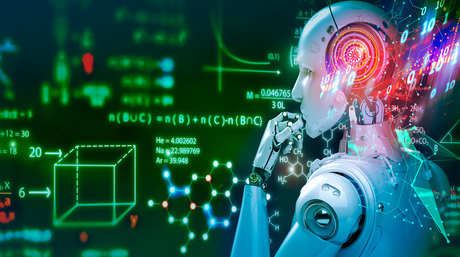
Artificial intelligence: Transform the future
Artificial intelligence (AI) is more than just a buzzword; it is a transformative force capable of reshaping the way we live, work, and interact with the world around us. In this word exploration, we will delve deeper into the fundamentals of AI, its history, applications, challenges, and its profound impact on various aspects of our lives. ta.
Learn about artificial intelligence.
At its core, AI is the simulation of human intelligence in machines, allowing them to perform tasks that typically require human intelligence. This includes a variety of activities such as problem solving, learning, reasoning, and natural language understanding. AI systems learn from data, adapt to new inputs, and make decisions based on models and algorithms. A brief history of AI

The concept of AI originates from ancient civilizations, where myths and legends told of humanoid automatons. However, it was not until the mid-20th century that AI, as we know it today, began to take shape. Pioneering figures such as Alan Turing laid the theoretical foundations for AI, and the development of electronic computers in the 1950s paved the way for practical implementation.
Early AI programs were rule-based and limited in scope. Early successes included IBM’s Deep Blue defeating world chess champion Garry Kasparov in 1997 and chatbots such as ELIZA in the 1960s. However, AI has faced “AI winter,” a period of declining funding and interest rates due to unrealistic expectations.
The renaissance of AI
In recent decades, AI has received renewed interest thanks to advances in machine learning and the availability of large amounts of data. Machine learning is a subset of AI that focuses on developing algorithms that allow computers to learn and make predictions or decisions without being explicitly programmed. Deep learning, a subset of machine learning, uses artificial neural networks that mimic the structure of the human brain.
AI applications
AI is now ubiquitous in many different fields.
Health care:
AI helps diagnose diseases, discover drugs, and care for patients. AI algorithms can analyze medical images, detect abnormalities, and provide treatment recommendations.
Finance:
AI is used for fraud detection, algorithmic trading, and credit risk assessment. Chatbots handle customer requests and provide financial advice.

Self-driving car:
Self-driving cars rely heavily on AI for perception, decision-making, and navigation.
Natural language processing:
AI-driven chatbots and virtual assistants like Siri and Alexa understand and respond to spoken or written language. Make:
AI-driven robots automate repetitive tasks, improving efficiency and accuracy.
Entertainment:
The recommendation system uses AI to suggest movies, music, and books based on user preferences.
ethical challenges and concerns
The rapid development of AI poses challenges.
Bias:
AI systems can inherit biases from their training data, leading to unfair decisions in areas like recruiting or criminal justice.
Security:
The collection and analysis of large amounts of personal data raises concerns about privacy and surveillance.
Conversion work:
Task automation can lead to job displacement, requiring workforce transformation. Ethical dilemma:
AI can be used in ethically ambiguous ways, such as autonomous weapons or technology.

The future of AI
The future of AI is filled with exciting possibilities.
General AI:
Researchers are working to create a general AI that has human-level intelligence and adaptability.
AI in healthcare:
AI will continue to revolutionize healthcare by predicting disease, personalizing treatments, and improving patient care.
Artificial intelligence and climate change:
AI can optimize energy consumption, predict weather conditions, and help mitigate the impact of climate change.
AI in education:
Personalized learning powered by AI can tailor education to individual needs, improving outcomes. AI in space
Exploration:
AI can help with autonomous navigation, data analysis, and decision-making during space missions.

Conclusion
In short, artificial intelligence has come a long way since its creation and is poised to profoundly reshape our world. From its historical origins to its current applications, AI has demonstrated its potential to revolutionize industries and improve the quality of our lives.



